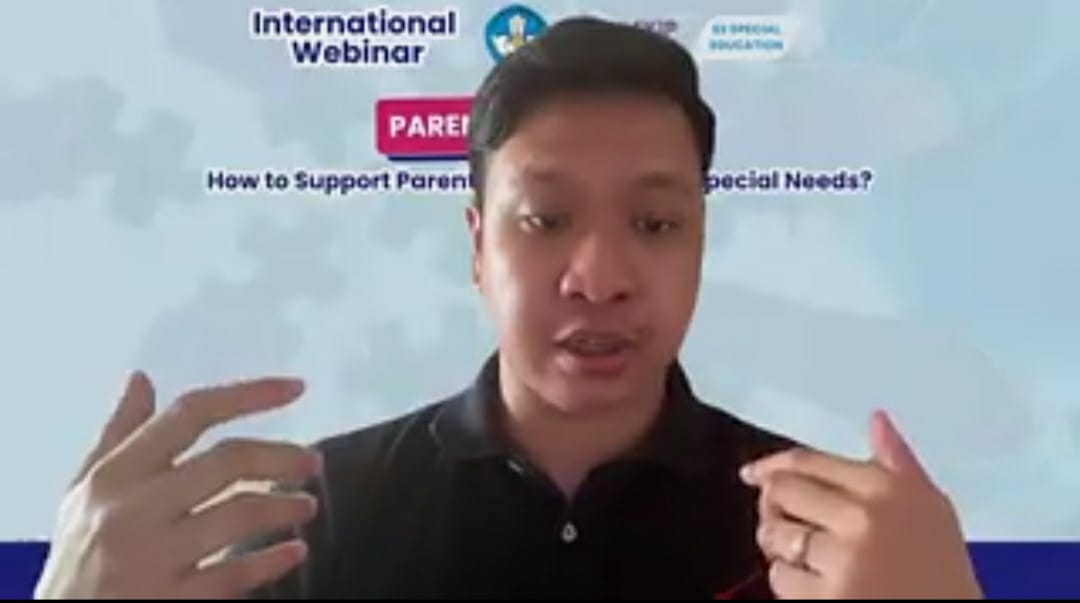The founder of the Indonesian Movement for Teaching Children with Special Needs (Mengajar Anak Berkebutuhan Khusus or ABK), Shinta Barasa was a speaker in a webinar organized by the Faculty of Education and Teachers’ Training (Fakultas Keguruan dan Ilmu Pendidikan or FKIP) entitled “How to Support of Children with Special Needs, on Thursday (16/10).
She urged participants to prioritise social awareness and mental strength as key factors in children accompaniment. She added that parents no only needed technical guidance, but also emotional supports. She also talked about her experience on how parents in Tanjung Selor, Kalimantan, had to go on a two-hour speedboat trip daily to access services – the same kind of things that parents of children with special needs would in in remote areas.
Shinta also added that a number of challenges faced by parents of children with special needs to meet their rights: 1. To get access to diagnostic services, 2. To get health services, 3. To get education services, 4. To get therapy services, and 5. To get livelihood guarantee by providing opportunities for training and employment. She said that the problem was that there was no one single entry point to do information dissemination – as each government offices organised their own information dissemination. Hence, only parents who had time could attend the information dissemination while those who could not come would not get the needed information.
The last session of the webinar was with the third speaker - Ran Wenas, an early education lecturer from Victoria University, Australia. In his presentation, He introduced inclusive approach specific to Australia which featured a concept of “whole image of the child” – which saw children as holistic persons, not just as a particular label such as “Autistic”. He believed that education had to move away from labeling towards rewarding/respecting of diversity of thoughts and learnings. Wenas emphasised key supports parents needed from teachers.
It was important for educators to choose the right/accurate information. Wenas reminded teachers to not mention diagnosis to parents casually, i.e. saying for example “our child may experience a spectrum of autism” without kowing fully what autism was and what impacts it had on child’s learning. He gave a service strategy using Artificial Intelligence – WhatsApp and Gemini/Chat GPT, 2. Introduction of assistance technology – two-tech and high-tech, 3. Snow Ball training for, teachers and therapists, to promote responsibility and involvement, 4. Annual training and supervision of cadres at integrated health posts and community health posts as a form of prevention and early intervention, 5. Therapy using environment-inventory/resources approach to allow for more functional and effective therapy, 6. Endowment fund managed by the government of trusted organization to ensure guarantee for families of children with special needs, and 7. Provision of Handbooks as parents’ guidelines. (Ast)












